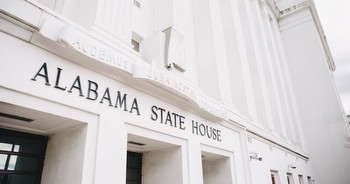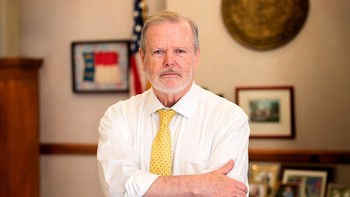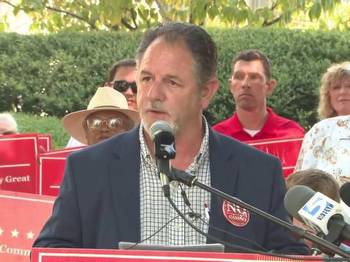Casino disagreement leaves NC without budget as Republicans trade barbs
A disagreement over new casinos is leading to more delays for North Carolina’s overdue state budget.
Republican lawmakers had said they planned to vote on a $30 billion spending plan this week. It’s a budget that was supposed to be done by July.
But House Speaker Tim Moore said he doesn’t have enough votes among Republicans to include plans for four new casinos in rural areas. That’s something Senate Republicans wanted to add to the budget.
Moore said he wants lawmakers to move ahead with the rest of the budget compromise that House and Senate Republicans have negotiated.
“My hope is, is that an agreement can be reached very quickly, to go ahead and move forward with the budget, as it's been agreed upon—without the gaming provisions—and then just run the gaming as a standalone bill,” he told reporters Tuesday morning.
But Moore is breaking a previous agreement to include gambling if at least half of House Republicans support it, said Senate leader Phil Berger. That change essentially voids the overall budget agreement, Berger added.
“I believe that House leadership needs to live up to its commitments,” he told reporters Tuesday afternoon. “The budget, as you know, is a series of compromises. If the compromises that have been reached in the past fall apart, then I think everything is subject to further conversations.”
Berger accused Moore of “moving the goal posts” on the casino legislation. In an email leaked to multiple news outlets last week, Moore told his GOP colleagues that the casinos wouldn’t happen unless at least 60 of the 72 House Republicans agreed to vote for a budget that includes gambling.
“The votes simply are not there to pass it with gaming,” Moore said.
Berger said it’s his understanding that about 40 House Republicans would vote yes, which would mean about 20 Democrats would also have to vote yes to pass the measure.
Previous gambling legislation has divided House Democrats, and Gov. Roy Cooper on Monday voiced reservations about tying gambling to the budget bill.
“I've said before that this is an issue that should be decided outside of the budget,” he said. “It shouldn't be holding up a budget that can help move the state forward, that's for sure.”
Cooper has said he’s considering vetoing the budget over a variety of issues, including additional tax cuts and the expansion of private school vouchers. If he does so, it’s likely all Republicans could need to vote for the budget bill on an override.
When asked about the prospect that the budget bill could fail to garner enough votes to become law, Berger said, “Well, then I think we need to see whether or not folks are willing to let the budget fail.”
What happens next in the GOP’s stalemate is anyone’s guess. Berger said Tuesday afternoon that he did not have any further meetings scheduled with Moore.
Past budget stalemates have led to what are known as "mini-budgets," a process in which lawmakers pass important and popular pieces of the budget as separate measures. But Berger ruled out using that approach to pass things like state employee raises and Medicaid expansion this year.






































